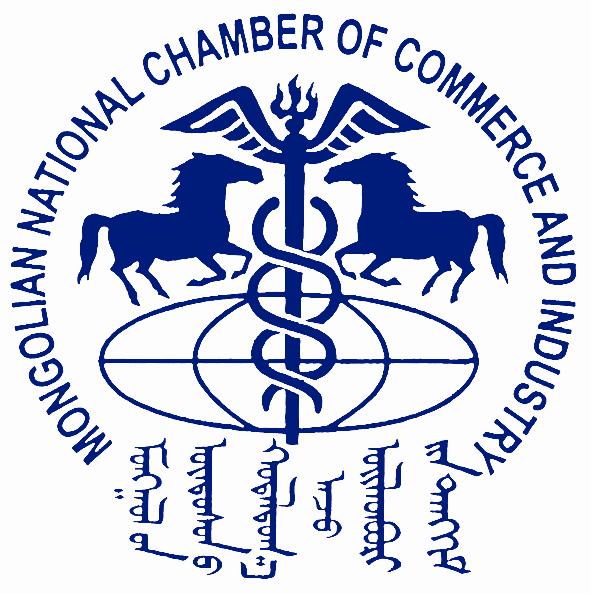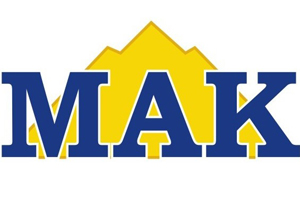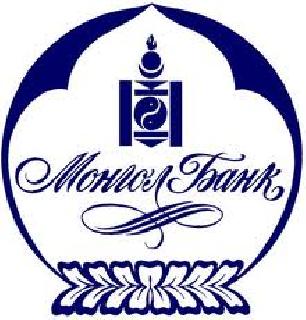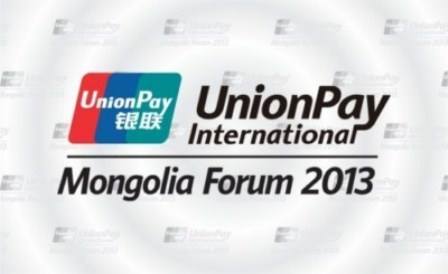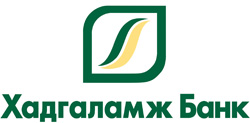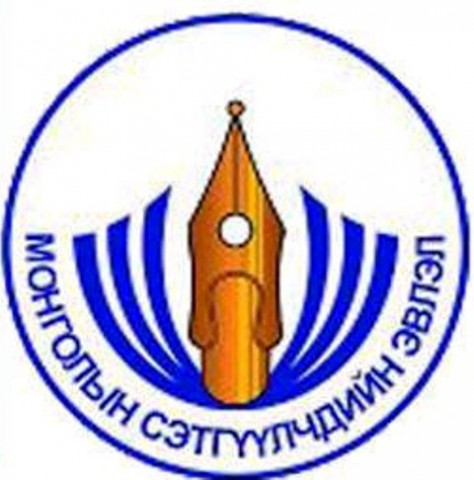An association that knows the drill

Talking to United World, the Executive Director of the Mongolian Drilling Association (MDA) Professor Tseveenjav.J shares his thoughts on the importance of the drilling to a number of the country’s key sectors as well the vital role the MDA for the industry
Professor, what do you find interesting about the country report we are conducting on Mongolia, and more specifically, relative to the drilling sector?
It is really nice because we are one world. Your company’s name is United World, which is a truly perfect name, and really portrays that we are one people. As for drilling, this subject is really important for geology, mining, and others such as construction and energy supply. In Mongolia, we have had drilling activities since the 40s of last century. Firstly in Mongolia, we had water well drilling for agriculture and livestock. After that, since 1941, oil and gas drilling started and at the same time, Mongolian geology expansion and mining drilling started taking place. Now in Mongolia, we have more than 300 drilling organizations with about 1000 drilling racks.
You mentioned the Mongolian mining sector. How do you think this report could contribute to major exposure of the Mongolian drilling sector?
Drilling is one aspect in theory and another in aspect. Mineral exploration drilling, blast hole mining drilling and water well drilling are all included in the drilling aspects. All these types of drilling exist in Mongolia. Many drilling organizations in Mongolia are from the geology and mineral exploration sector. We also have many mining and drilling companies, such as Ochyr Undraa that do blast hole drilling. Water well drilling is very popular in Mongolia because Mongolian territory is vast yet there is not enough surface water except for Khuvsgul, Orkhon and Tuul lake. As a result, we need to drill in other territories to have ground water for agriculture, livestock, and people in the suburbs. I think that the Mongolian people and young generation are very competent and skilled. I’m very glad that drilling companies from Australia, Russia, China and other western companies are coming to Mongolia and our local companies are learning from them. Our young drillers are being trained. Now young Mongolian drillers work not only in Mongolia, but also in Australia, Armenia, Kazakhstan. Galbadrakh, who worked in Western Africa and Mauritania, got a drilling certificate. Also Dorj Ariunbold, who is my student, is working in Qatar and Altangerel Ganzorig, another student of mine, is working in Egypt. However, in winter, he came here as the political situation in Egypt was unstable.
What are the some of the major challenges that the sector faces?
I would like to say one thing. In Mongolia, we have really good drilling equipment from around the world. For example, Sandvik from Canada and Sharam, which cost more than 1 million USD, from USA, as well as Universal Drilling Rigs (UDR) from Australia, Russia, Japan, Korea and China. The main challenge is the drilling safety and environment aspects in Mongolia, because drilling operations are highly paid yet at the same time, tough to do. People need to work from 20 years to 45 years. After 45 years, you can be a consultant. It is the same around the world, Texas, USA and Russia.
In terms of the natural resources that Mongolia has, what needs to be done in order for those resources to be more beneficial to the country?
Mongolia is geographically very well located, in central Asia between two countries. I think we need to exploit mineral resources and have a good legal framework set up by the government. Mineral resource laws and Petroleum laws are to be amended. Mineral Resource Law signed in 1997 was democratic and fair in terms of its aspects. The Government only needs to control and grant licenses. However, the Government shouldn’t do any business. For example, in the case of OT, we don’t need to have any shares. The revenue can be in taxes. And Mongolian people working for OT should have a high salary. Business freedom is necessary everywhere in the world. The government doesn’t need to set any limits.
You speak about the government and you also have the association you are the head of. Can you tell the readers what the exact role of the association is?
The professional association works for a sector without any political influence. We support all the member organizations. Non-governmental organizations are essential in any country. The ministry of the country is cooperating with us. Of course, there is a government as well as monitoring. There are a number of other mining associations and I think, our drilling association works closest with the government. Our drilling association will work better in the future for the sector; otherwise it doesn’t make sense for us to work for businesses, politics and money. Mongolian drillers and the drilling association take care of each other, locally and internationally. We have a memorandum of understanding with Russian, Chinese and Australian drilling organizations. I’m also a member of the Australian Industry Drilling Association.
As for the Mongolian Drilling Association, can you tell us who the most representative members of the association are?
First, our member fee is only 100 dollars per year. I am sometimes told to increase the membership fee. I don’t like to increase it, as we can run our operations with this low fee from member companies. We are not paid either, whilst we have a sponsorship in case of any events which are Tanan Impex, Ordgeo, Ilgen, MUD (Mongolian Universal Drilling), Mongolian National Diamand Drillling company, owned by Mr.Banzragch, who was my graduate student. There are also joint ventures as well as foreign companies. A total of 300 Mongolian drilling organizations, of which 15 to 25 of them are joint ventures with Japanese, Russian, Korean or Chinese companies.
As you already know, we have been here since September. And we have been working together with the National Mining Association. We interviewed the Vice Minister of Mining and various international mining companies that operate in Mongolia. However, for this report, we want to portray "100 percent Mongolian” companies. And everyone knows about ETT and OT and this is not necessarily what we are interested in. So, can you tell us some examples of those 100 percent national companies that are doing well given the current situation in the sector?
Those companies are Tanan Impex, Ordgio, Ilgen and Mongolian National Diamond Drilling, which are all Mongolian companies. There is also a company called MUD (Mongolian Universal Drilling). These companies finance their operations with their own resources.
Do you think these companies would be interested in partnerships or exposure in terms of technology, human capacity, and monetary investments from the United States?
I think there definitely is. Regarding the US, soon Mongolian drillers will start executing oil drilling, first in the US, Russia and China. We now have only the Petroleum Law and Production Sharing Contract, which is not sufficient for Mongolia. Chinese companies, CNBC and Dustch Oil are cooperating with Mongolian companies. Our members prefer to participate in oil drilling, which is very beneficial to them. However, the Mongolian government policy and Petroleum Law of Mongolia shall be amended. Everywhere in the World, operational freedom is very important. Our drilling organizations need to have some partnerships or cooperation and be introduced to the API standard (American Petroleum Institute Standard Drilling), which includes financial support and operational experience. China is now a member of the World Trade Organization because previously, I visited many equipment companies in China to support the WTO.
- See more at: http://www.worldfolio.co.uk/region/asia/mongolia/professor-tseveenjav-j-mongolian-drilling-association-mda-mongolia-n2812#sthash.M6w8Iipn.dpuf
It is really nice because we are one world. Your company’s name is United World, which is a truly perfect name, and really portrays that we are one people. As for drilling, this subject is really important for geology, mining, and others such as construction and energy supply. In Mongolia, we have had drilling activities since the 40s of last century. Firstly in Mongolia, we had water well drilling for agriculture and livestock. After that, since 1941, oil and gas drilling started and at the same time, Mongolian geology expansion and mining drilling started taking place. Now in Mongolia, we have more than 300 drilling organizations with about 1000 drilling racks.
You mentioned the Mongolian mining sector. How do you think this report could contribute to major exposure of the Mongolian drilling sector?
Drilling is one aspect in theory and another in aspect. Mineral exploration drilling, blast hole mining drilling and water well drilling are all included in the drilling aspects. All these types of drilling exist in Mongolia. Many drilling organizations in Mongolia are from the geology and mineral exploration sector. We also have many mining and drilling companies, such as Ochyr Undraa that do blast hole drilling. Water well drilling is very popular in Mongolia because Mongolian territory is vast yet there is not enough surface water except for Khuvsgul, Orkhon and Tuul lake. As a result, we need to drill in other territories to have ground water for agriculture, livestock, and people in the suburbs. I think that the Mongolian people and young generation are very competent and skilled. I’m very glad that drilling companies from Australia, Russia, China and other western companies are coming to Mongolia and our local companies are learning from them. Our young drillers are being trained. Now young Mongolian drillers work not only in Mongolia, but also in Australia, Armenia, Kazakhstan. Galbadrakh, who worked in Western Africa and Mauritania, got a drilling certificate. Also Dorj Ariunbold, who is my student, is working in Qatar and Altangerel Ganzorig, another student of mine, is working in Egypt. However, in winter, he came here as the political situation in Egypt was unstable.
What are the some of the major challenges that the sector faces?
I would like to say one thing. In Mongolia, we have really good drilling equipment from around the world. For example, Sandvik from Canada and Sharam, which cost more than 1 million USD, from USA, as well as Universal Drilling Rigs (UDR) from Australia, Russia, Japan, Korea and China. The main challenge is the drilling safety and environment aspects in Mongolia, because drilling operations are highly paid yet at the same time, tough to do. People need to work from 20 years to 45 years. After 45 years, you can be a consultant. It is the same around the world, Texas, USA and Russia.
In terms of the natural resources that Mongolia has, what needs to be done in order for those resources to be more beneficial to the country?
Mongolia is geographically very well located, in central Asia between two countries. I think we need to exploit mineral resources and have a good legal framework set up by the government. Mineral resource laws and Petroleum laws are to be amended. Mineral Resource Law signed in 1997 was democratic and fair in terms of its aspects. The Government only needs to control and grant licenses. However, the Government shouldn’t do any business. For example, in the case of OT, we don’t need to have any shares. The revenue can be in taxes. And Mongolian people working for OT should have a high salary. Business freedom is necessary everywhere in the world. The government doesn’t need to set any limits.
You speak about the government and you also have the association you are the head of. Can you tell the readers what the exact role of the association is?
The professional association works for a sector without any political influence. We support all the member organizations. Non-governmental organizations are essential in any country. The ministry of the country is cooperating with us. Of course, there is a government as well as monitoring. There are a number of other mining associations and I think, our drilling association works closest with the government. Our drilling association will work better in the future for the sector; otherwise it doesn’t make sense for us to work for businesses, politics and money. Mongolian drillers and the drilling association take care of each other, locally and internationally. We have a memorandum of understanding with Russian, Chinese and Australian drilling organizations. I’m also a member of the Australian Industry Drilling Association.
As for the Mongolian Drilling Association, can you tell us who the most representative members of the association are?
First, our member fee is only 100 dollars per year. I am sometimes told to increase the membership fee. I don’t like to increase it, as we can run our operations with this low fee from member companies. We are not paid either, whilst we have a sponsorship in case of any events which are Tanan Impex, Ordgeo, Ilgen, MUD (Mongolian Universal Drilling), Mongolian National Diamand Drillling company, owned by Mr.Banzragch, who was my graduate student. There are also joint ventures as well as foreign companies. A total of 300 Mongolian drilling organizations, of which 15 to 25 of them are joint ventures with Japanese, Russian, Korean or Chinese companies.
As you already know, we have been here since September. And we have been working together with the National Mining Association. We interviewed the Vice Minister of Mining and various international mining companies that operate in Mongolia. However, for this report, we want to portray "100 percent Mongolian” companies. And everyone knows about ETT and OT and this is not necessarily what we are interested in. So, can you tell us some examples of those 100 percent national companies that are doing well given the current situation in the sector?
Those companies are Tanan Impex, Ordgio, Ilgen and Mongolian National Diamond Drilling, which are all Mongolian companies. There is also a company called MUD (Mongolian Universal Drilling). These companies finance their operations with their own resources.
Do you think these companies would be interested in partnerships or exposure in terms of technology, human capacity, and monetary investments from the United States?
I think there definitely is. Regarding the US, soon Mongolian drillers will start executing oil drilling, first in the US, Russia and China. We now have only the Petroleum Law and Production Sharing Contract, which is not sufficient for Mongolia. Chinese companies, CNBC and Dustch Oil are cooperating with Mongolian companies. Our members prefer to participate in oil drilling, which is very beneficial to them. However, the Mongolian government policy and Petroleum Law of Mongolia shall be amended. Everywhere in the World, operational freedom is very important. Our drilling organizations need to have some partnerships or cooperation and be introduced to the API standard (American Petroleum Institute Standard Drilling), which includes financial support and operational experience. China is now a member of the World Trade Organization because previously, I visited many equipment companies in China to support the WTO.

URL:
Comments:
Add Comments
Exchange Rate
Foreign shares
| New York Stock Exchange | ||
| Name | Closing | Changes |
| BHP Billiton Ivanhoe Mines |
90.53 23.3 |
1.44 0.00 |
| Australian Stock Exchange | ||
| Name | Closing | Changes |
| General Mining Corp Aspire Mining Limited |
0.145 0.52 |
0.00 -0.02 |
| London Stock Exchange | ||
| Name | Closing | Changes |
| Petro Matd Limited polo Resources Limited |
123.5 5.4 |
0.00 0.02 |
| Hong Kong Stock Exchange | ||
| Name | Closing | Changes |
| Mongolian Mining Corporation Mongolia Energy |
9.59 1.14 |
0.00 -0.06 |
| Toronto Stock Exchange | ||





